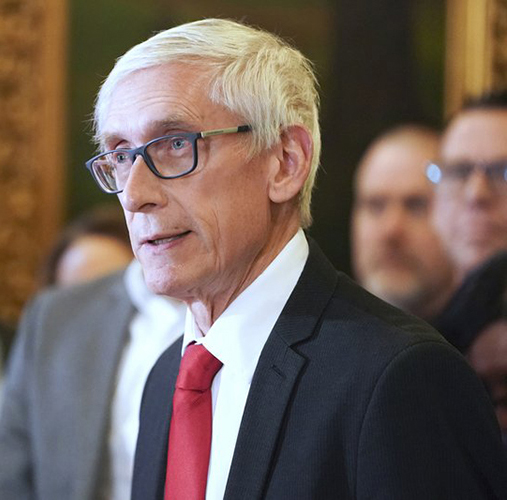MADISON, Wis. — According to the Associated Press, ew limitations were placed on Wisconsin child care facilities Wednesday as the number of confirmed COVID-19 cases in the state topped 100, and policymakers scrambled to find emergency help for displaced workers and struggling businesses.
Gov. Tony Evers said that although an order to shelter in place was an option, “I don’t believe we’re going to get to that point.”
It’s likely that the coronavirus is now circulating statewide, even though the 106 confirmed cases were found in only 14 of Wisconsin’s 72 counties, said Julie Willems Van Dijk, deputy secretary of the state Department of Health and Human Services.
She, Evers and other members of his Cabinet spoke on a call organized by Wisconsin Manufacturers and Commerce that organizers said drew 2,000 participants.
Evers said child care settings must have no more than 10 staffers and 50 children present at the same time. Providers were asked to prioritize families of health care and essential service workers. The restrictions take effect on Thursday at 8 a.m. and will remain in place indefinitely.
Children’s Hospital of Wisconsin in Wauwatosa said on Wednesday that a doctor had tested positive for COVID-19 after traveling outside the state before restrictions were in place. The doctor was quarantined at home and had mild symptoms.
“We have seen this happen at health care organizations across the nation, and we knew it was only a matter of time before we had a confirmed case on our team,” the hospital said in a statement.
The Milwaukee Journal Sentinel reported that the hospital was testing 10 patients and about 190 health care workers, but a national shortage of tests was leaving out some of those who may have been exposed to the doctor, including the father of a teenage girl with leukemia who is being isolated with his daughter.
Evers, a Democrat, spoke with Republican legislative leaders about his plan for an emergency package of legislation to help those struggling due to the virus. Evers has said he wants the Legislature to remove a one-week waiting period to receive unemployment benefits, which the Legislature rejected last year.
The lawmakers and Evers didn’t reveal details about what was discussed, but they all said afterward that the meeting was productive and that they agreed to talk regularly. Evers and Republicans have been unable to work together on most major issues, but they said Wednesday that they were united in doing what’s best.
Evers was expected to issue an executive order speeding up unemployment benefits for those who have lost a job due to the outbreak. He also submitted a request to the U.S. Small Business Administration for disaster loans of up to $2 million for each qualifying small business and private nonprofit organization that has been hit hard by the pandemic.
The Wisconsin Economic Development Corporation board on Tuesday approved $5 million to pay for grants of up to $20,000 for businesses with fewer than 20 employees to cover rent and payroll expenses related to COVID-19, the disease caused by the coronavirus.
Democratic and Republican members of Wisconsin’s congressional delegation joined together to ask for more surgical masks, respirators and other equipment as they said hospitals awaiting a rush of patients were “critically low” on needed supplies.
Only Reps. Glenn Grothman and Jim Sensenbrenner, both Republicans, did not sign it. They did not immediately respond to messages asking why.
The coronavirus pandemic has shuttered schools, colleges, universities, bars, restaurants and other businesses throughout the state, just as it has across the country. Health officials are urging people to stay at home and to avoid contact with others in an effort to slow the spread of the virus.
For most people, the coronavirus causes only mild or moderate symptoms, such as fever and cough. For some, especially older adults and people with existing health problems, it can cause more severe illness, including pneumonia. The vast majority of people recover.
Evers has also ordered a statewide ban on all gatherings of more than 10 people and closed all bars and restaurants except for delivery and pickup orders. Some bars ignored the order, while others were laying off employees in anticipation of the massive drop in business.





